
Going to the doctor is stressful. Putting your ten-pound ball of angry fur with razor-blades for fingernails into a box just a smidge larger than said ball of angry fur sounds, impossible? This is the reality for many cat owners trying to take their cat to their veterinarian for an annual visit, or if you’re not so lucky, a “sick” visit.
Cats, by nature, are creatures of habit. If you think about it, the only time your cat ever sees the outside of the house is for these visits and there’s not regularity to them. This is one of the many reasons going to the vet can be so stressful for them. So, we ask ourselves, what can we do about it?
Carrier Desensitization – Getting your cat used to the carrier
Step one of going to the vet is usually getting the carrier out. How many of you have cats that are gone and in hiding just from the sight of the carrier?
Carrier desensitizing begins by making the carrier a regular part of their lives. Hard plastic carriers are the best option because they come apart easily. You can take the top off your carrier and place a blanket or a cat bed inside of it, ideally use something your cat is accustomed to laying on. Make this “carrier bed” a regular fixture for them.
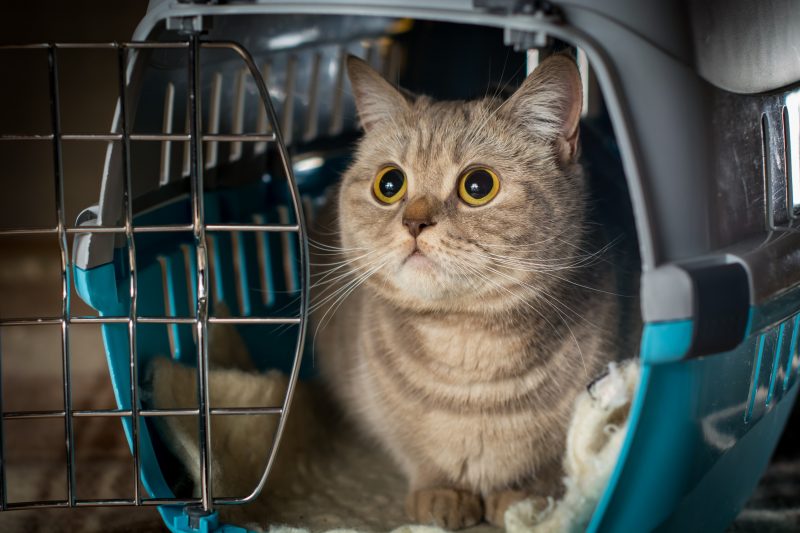
Once your cat regularly starts napping there, you can add the top. Make sure the door is either absent or tethered so that it cannot accidentally close your cat in.
If you’re lucky, your cat will start using his carrier as a safe sleeping space and then when that dreaded day comes, you can gently close the door and go on your way.
Seems too simple.
Pheromones – Using your cats “language” to help calm them
Simply desensitizing your cat to the carrier may not be enough. Many cats will vocalize and even have accidents during the actual ride in the car. The decrease on their anxiety you can use pheromone sprays. Cats communicate with a variety of pheromones. Specifically, mother cats use “harmony messages” that are appeasing and calming to cats of all ages. There are products such as Feliway and Comfort Zone that mimic these pheromones and can be sprayed into your cat’s carrier or bedding to make the trip easier for them.
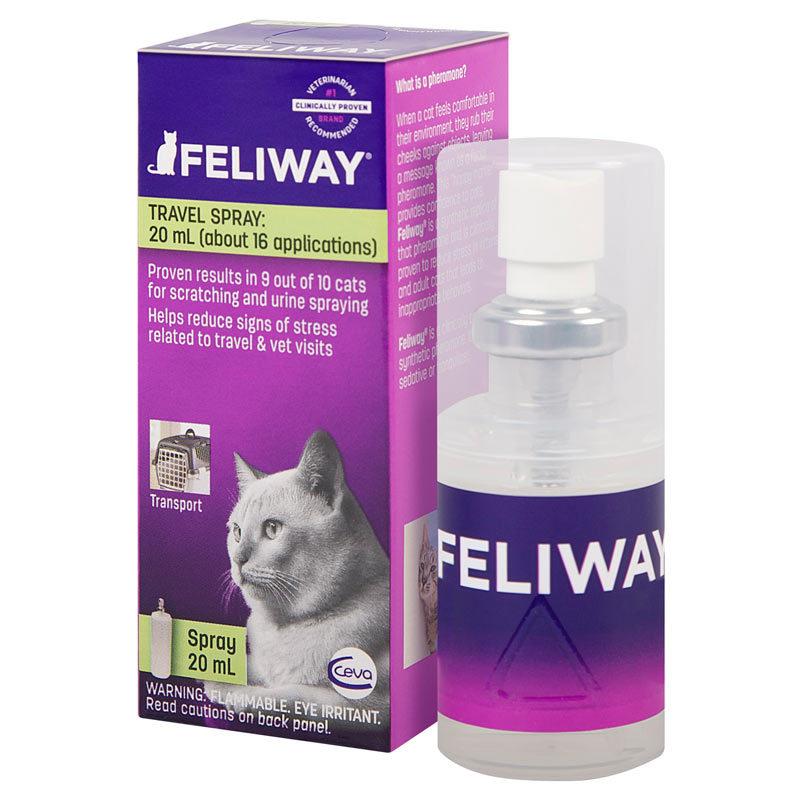
Pheromone sprays should be used BEFORE the cat is in the carrier to allow it time to dry, about 10 minutes. The spray should last about 4-5 hours and then should be reapplied if necessary.
The Ride and the Arrival
Working on desensitizing your cat to every aspect of the trip is the key to a stress-free vet visit! Once your cat is accustomed to the carrier you can start taking short car trips. Just a few minutes around the block and home is enough! Doing this regularly can teach your cat that not every carrier ride and trip in the car means poking and prodding. In additional to working on the car ride. Think about your arrival at the vet.
When you arrive at the vet, if you’re able, keep you carrier up high so that your cat is not eye level with any dogs in the waiting room. If you’re lucky, and your veterinarians waiting room allows for it, try to wait separate from any dogs waiting. Having dogs walk up to their carrier and sniff or barking and undo any of the calming steps you’ve taken!
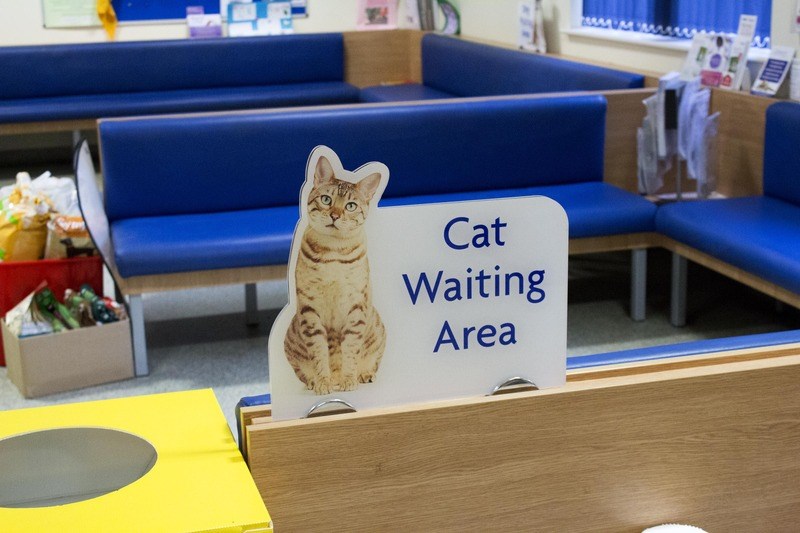
Overall, it’s slow going and patience is key but having a cat that will easily go into a carrier and travel for you will not only make their health visits easier on them, they’ll be easier on your too! Happy cat, happy owner!
 That Pet Blog That Pet Place Pet Blog
That Pet Blog That Pet Place Pet Blog










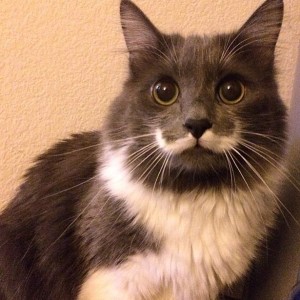
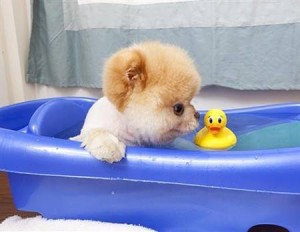



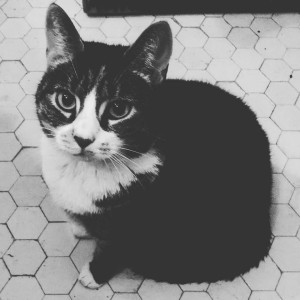
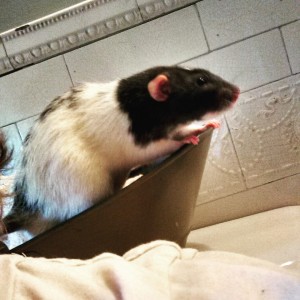
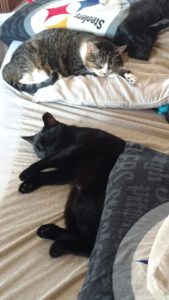
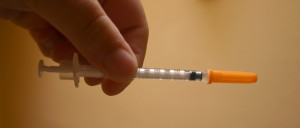


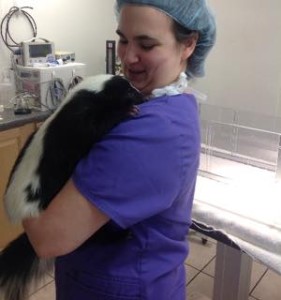

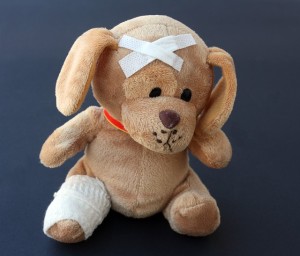
 It’s no secret that your pets need fresh clean drinking water every day for optimum health. It’s also no secret that cats and some dogs are very finicky about, well, pretty much everything! With the warmer weather approaching I want to talk about your pet’s drinking habits.
It’s no secret that your pets need fresh clean drinking water every day for optimum health. It’s also no secret that cats and some dogs are very finicky about, well, pretty much everything! With the warmer weather approaching I want to talk about your pet’s drinking habits.